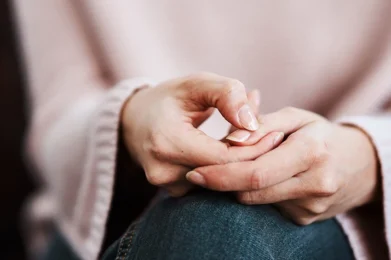In This Article:
- Our country is in an opioid crisis, but sharing medication goes beyond opioids. Many teens share ADHD medication, and it’s not uncommon for families to save prescription painkillers at home “just in case.”
- Do not share your medication with others. Every prescription affects each person differently, and you can never be sure how their body will react. Doses are different for children and adults, and expired medications can be dangerous. Plus, it is illegal.
- In short, use only prescription medications that have your name on the label. Keep your family safe by throwing away unused medications properly and not sharing your prescriptions with others.
What happens when people share their medications with others?
Unfortunately, we’re seeing the dangerous consequences of what can happen, most notably with the current Opioid Crisis declared by the U.S Department of Health and Human Services (HHS). HHS estimates over 11 million people misused prescription opioids in 2017.
The abuse of prescription medications stretches beyond opioids. It’s not uncommon for teenagers and college students to share their ADHD medication (Source: 1), and families stockpile prescription painkillers at home “just in case” (Source: 2). Even sharing antibiotics could be dangerous.
Before you share your prescriptions or take something that’s not prescribed to you, consider these warnings from the American Society of Health-System Pharmacists:
- Medications affect people differently. Prescriptions are meant to be used under the direct care of a doctor who is responsible for monitoring your condition and how you respond to the treatment. Your medical team has carefully chosen medicines that will work for you by considering your allergies, potential side effects, and any interactions that your current medications may cause.
- Doses are different for children. It’s important to always seek the advice of a medical professional when giving medication to a child. Doses that are prescribed for adults are not the same for children, and certain medications may harm a child’s development. As your child’s weight changes, medication dosing will need to be adjusted and should be monitored closely by their physician.
- Expired medications are dangerous. Leftover medications can be less effective and possibly dangerous if they are kept past their expiration date or are stored in the wrong conditions, such as hot or wet places.
- It’s illegal. Prescription medications that are considered controlled substances are not allowed to be transferred to another person, according to federal law.
In short, use only prescription medications that have your name on the label. Keep your family safe by throwing away unused medications properly and by not sharing your prescriptions.
(Source 1: Pharmacy Times; Source 2: American Society of Health-System Pharmacists)







